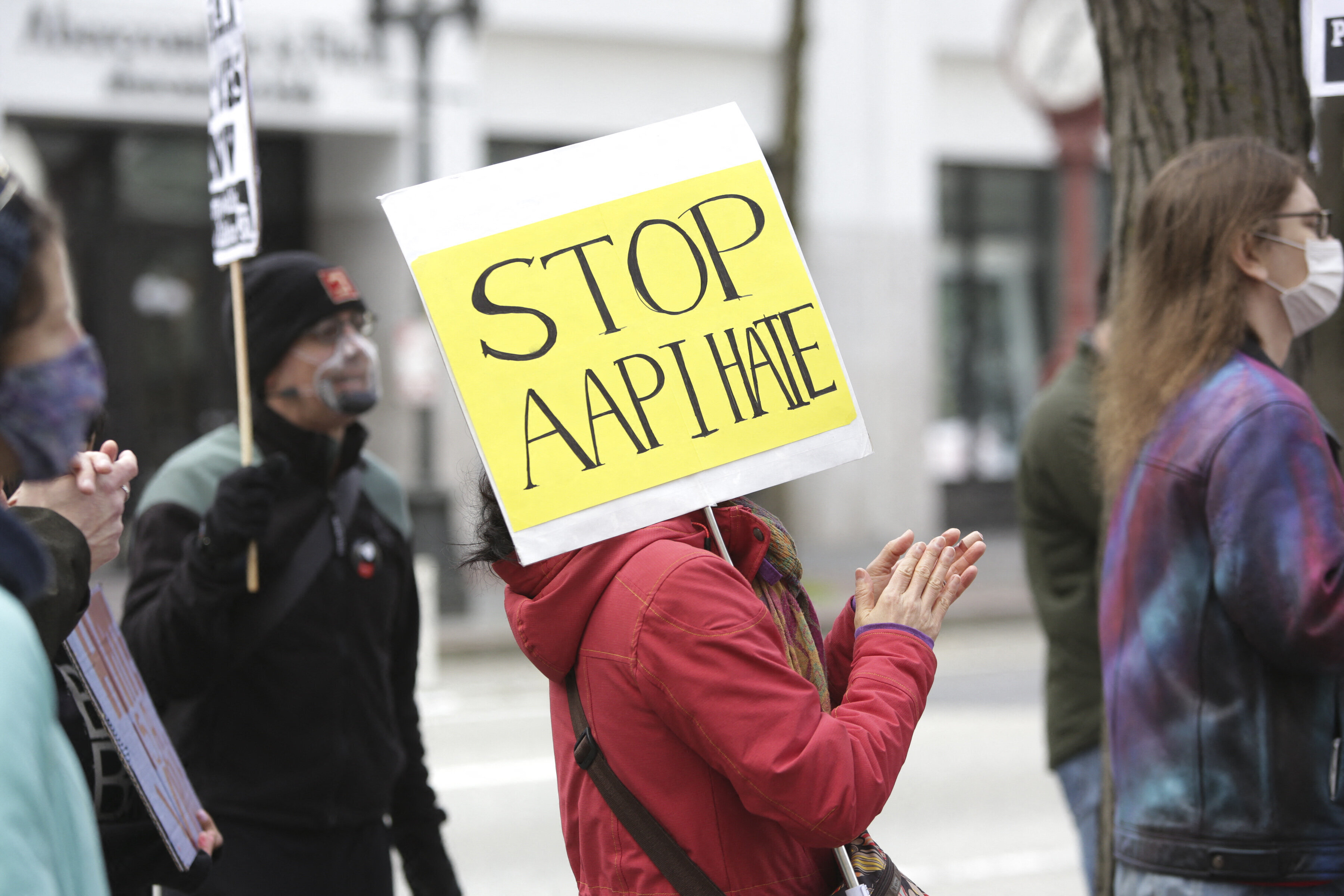New Study Suggests Anti-Asian Hate And Fear Remain High In New York City

Despite some reports that anti-Asian hate crimes are declining in New York, Asian Americans in the city still fear for their safety and remain hypervigilant in public settings, according to a new study.
The study — whose results were released Thursday by The Asian American Foundation, or TAAF — surveyed 1,000 New York City-based Asian Americans ages 16 and above between Nov. 30 and Dec. 19. The findings show that safety is a major concern among Asian Americans there.
Advertisement
According to the survey, 1 in 5 Asian Americans were physically assaulted in the past 12 months, and 1 in 2 reported experiencing insults, harassments, threats, or a physical attack during that period because of their race or ethnicity. More than half of those surveyed also reported feeling unsafe on public transportation, with 83% of Asian American women calling public safety a major concern in the city.
Between 2020 and 2021, anti-Asian hate crimes surged across the country amid racist rhetoric linked to the COVID-19 pandemic, with New York City experiencing the largest increase in reports of these incidents, according to a study performed at the time.
Since then, data from the New York Police Department has shown a decrease in such crimes in the city, with 83 incidents targeting Asians in 2022 and 51 incidents in 2023.
But despite this reported decline, TAAF head Norman Chen said that anti-Asian hate crimes have not dissipated, and that fear is still heightened for Asian Americans in the city.
Advertisement
TAAF’s survey found that 62% of respondents witnessed an Asian American community member being insulted, harassed, threatened or physically attacked due to their race or ethnicity in the past 12 months. Additionally, 75% of respondents changed their daily routines or behaviors to avoid hate crimes, such as by not speaking in their native tongue.
“The anti-Asian hate rhetoric and violence that targeted the AAPI community in 2020 has not stopped,” Chen said in a statement, using an acronym for Asian Americans and Pacific Islanders.
“We’re seeing this in the continued hate, violence, and distrust towards Asian Americans New Yorkers. The othering of our community contributes not only to discrimination and prejudice in public spaces, but also erodes any efforts toward equity and inclusivity for AAPIs.”
Earlier this week, the governor of New York state announced that National Guard members would be deployed to patrol some of New York City’s subways with police and conduct bag checks to deter criminal activity.
In a statement to HuffPost, TAAF Regional Director Eugena Oh said that while she understands the governor’s urgency in responding to assaults in the public transportation system, TAAF’s survey shows that 67% of respondents thought better relations with police would help combat anti-Asian incidents.
Advertisement
“Enhanced relationships with law enforcement are critical to increasing safety, encouraging reporting, and providing a sustainable sense of security for our community,” Oh told HuffPost. “In particular, we need linguistically and culturally appropriate mechanisms for reporting and overall trust building with our communities and the police.”
The TAAF study indicates many New Yorkers are reluctant to report anti-Asian hate crime incidents or face barriers in doing so, which could lead to an undercount in official data on their prevalence.
More than half of survey respondents who experienced a hate incident in New York did not report the experience to anyone. Among them, 42% said they were reluctant to bring additional attention to themselves by reporting, and 29% were unaware that reporting an incident was an option in New York.
Additional barriers were also present for those aware of the reporting process, with 27% not knowing how to report such incidents and 26% indicating that they didn’t feel comfortable reporting them to law enforcement or other officials.
“We hope this study will shine a light on the ever-present issue of Asian American safety in New York and provide the data necessary for city leaders to come together to meaningfully invest in our community,” Oh said in a statement.
Advertisement

Comments are closed.